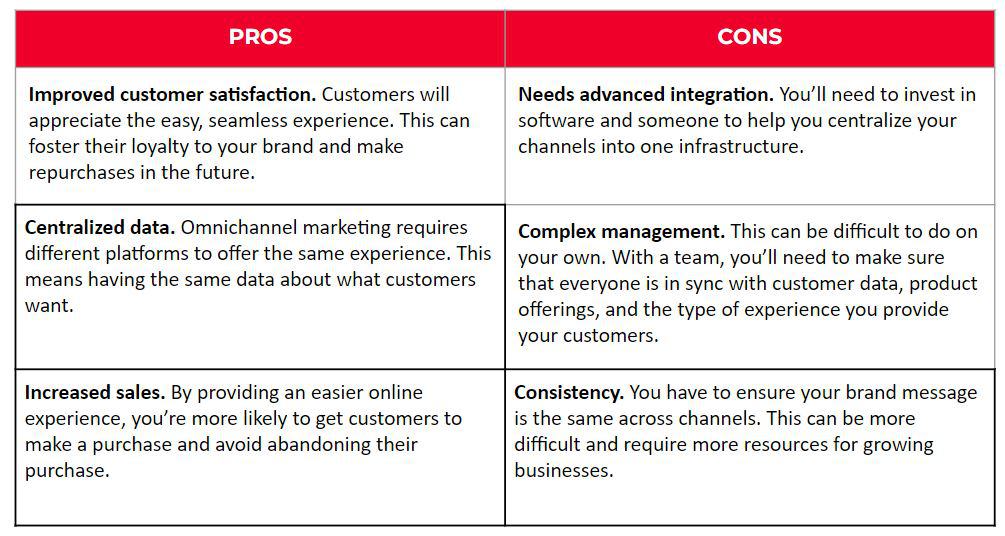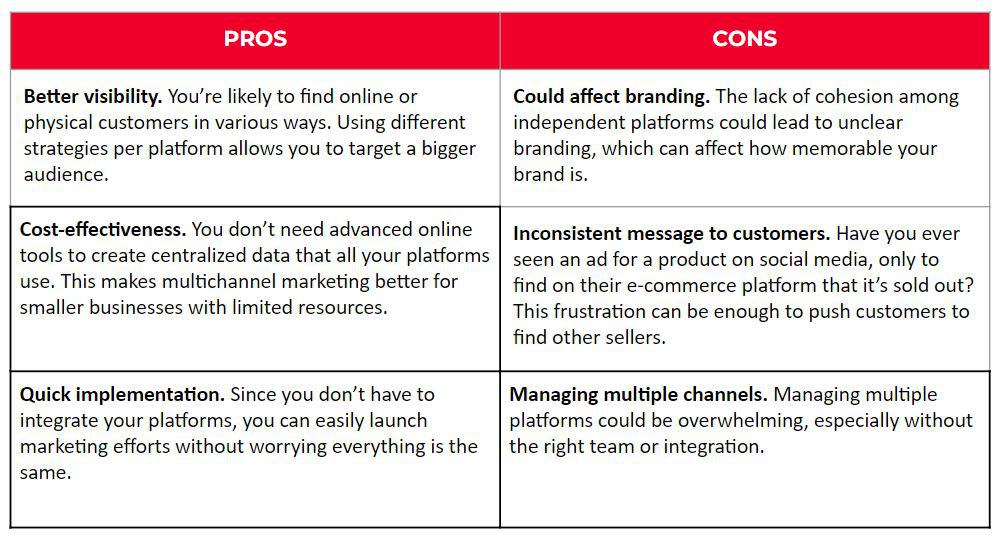As an online business owner, having a marketing plan can increase your potential for sales. Whether you sell exclusively on one platform, multiple apps, or have both a physical and online store, the internet offers plenty of opportunities to reach out to interested customers.
While learning about online marketing strategies, you might read about omnichannel and multichannel marketing strategies. Although some may use them interchangeably, there are big differences between the two and how they affect your overall strategy.
The key differences between multichannel marketing vs. omnichannel marketing
To decide which strategy is right for your business, it’s important to understand the difference between omnichannel vs. multichannel marketing.
What is omnichannel marketing?
Omnichannel marketing is a strategy designed for a seamless experience. Whether your customers shop in your physical store, e-commerce store, your social media page, website, or app, they’re treated to the same products and shopping experience.

exploring different channels.
Let’s say for example that you sell clothes online. With an omnichannel marketing strategy, you sell your clothes on different platforms. However, your marketing efforts are working together to provide the same experience.
You could advertise your products on social media, offer more details on your website, and then provide the best deals on your app or any platform where you sell your products.
When done correctly, your customers will feel like they’ve interacted with a single brand. This is because of their seamless experience despite exploring different channels.

What is multichannel marketing?
Multichannel marketing uses various platforms to give customers the choice of which channel they want to engage with and purchase from. Unlike omnichannel marketing where it’s a seamless experience, you have the flexibility to provide independent marketing strategies tailored to each channel.

to engage with and purchase from.
Let’s go back to the clothing store example: Under multichannel marketing, you can sell your clothes through your brick-and-mortar store or on multiple e-commerce platforms. The experience provided in each option is different.
For example, only one e-commerce platform offers free shipping, while there are exclusive sales if your customers shop in your physical store.
The point of multichannel marketing is to increase your business’ reach and visibility. If you have a diverse customer base, you can create different strategies based on what works best per group.

How to choose the right model for your business?
Omnichannel and multichannel can both work for small online businesses. However, given their pros and cons, it’s important to weigh in which advantages are more important to your business.
Multichannel marketing may be best for small businesses if they:
- Have very limited resources and can’t initially invest in tools needed to create centralized data.
- Want to operate channels that are independently run.
- Seek to grow their customer base by exploring different strategies that don’t necessarily play off each other.
On the other hand, omnichannel marketing is best for those who:
- Have the resources to execute a better, more seamless experience for customers.
- Want to focus less on casting a wide net and more on the overall experience of one customer.
- Can focus less on increasing sales and more on the long-term advantages of positive client experiences.
Which marketing strategy works best for your business?
There are several instances where either omnichannel or multichannel works best for your online store. Ultimately, it depends on your business’ current goals and status. A multichannel marketing strategy is great for increasing your visibility and sales, while an omnichannel strategy focuses on client experience.
Regardless of which marketing strategy you choose, don’t forget the other aspects of running an online store that can affect your brand and customer satisfaction. When it comes to on-time, streamlined order fulfillment, Ninja Van is your trusted partner.
Learn how Ninja Van’s solutions go above and beyond for our customers.







